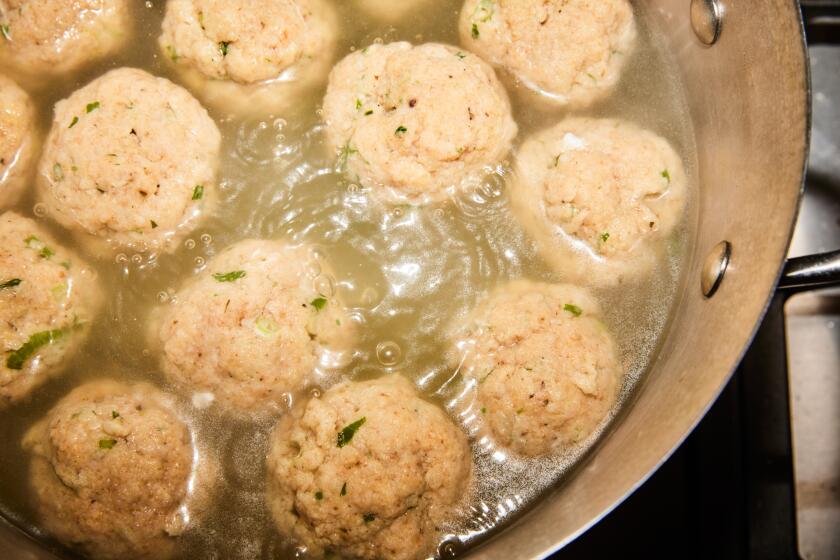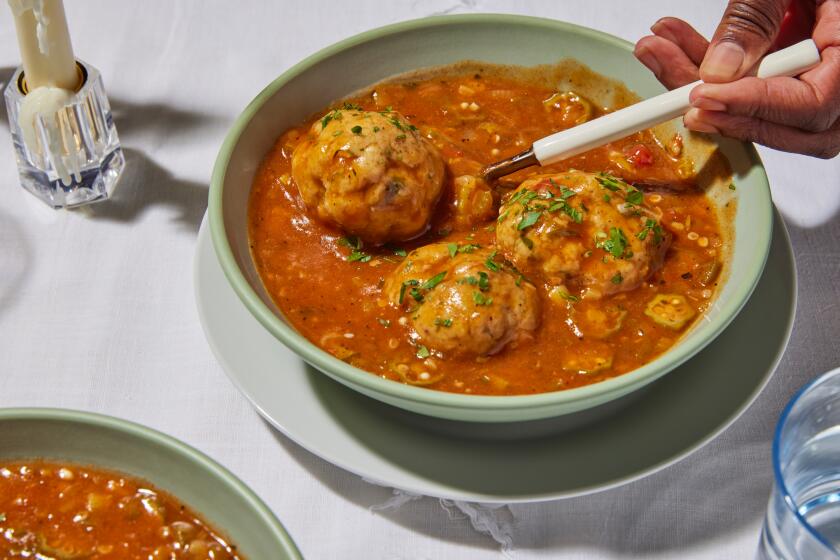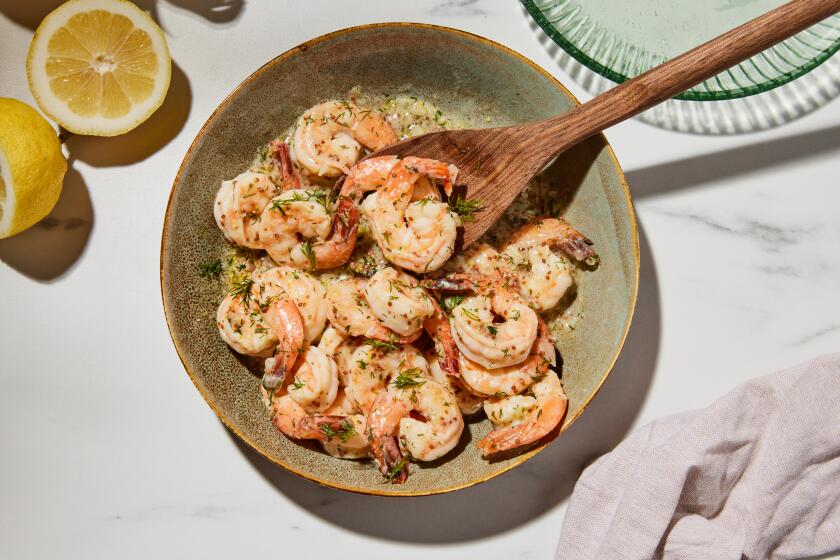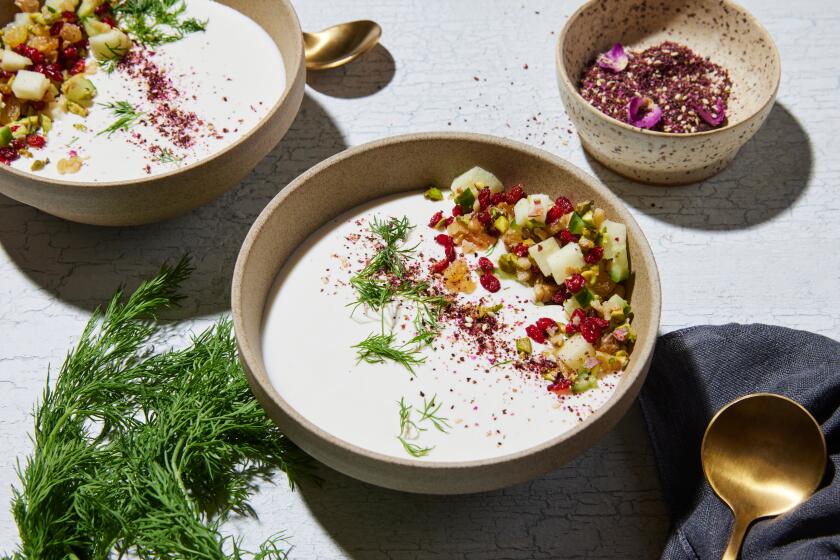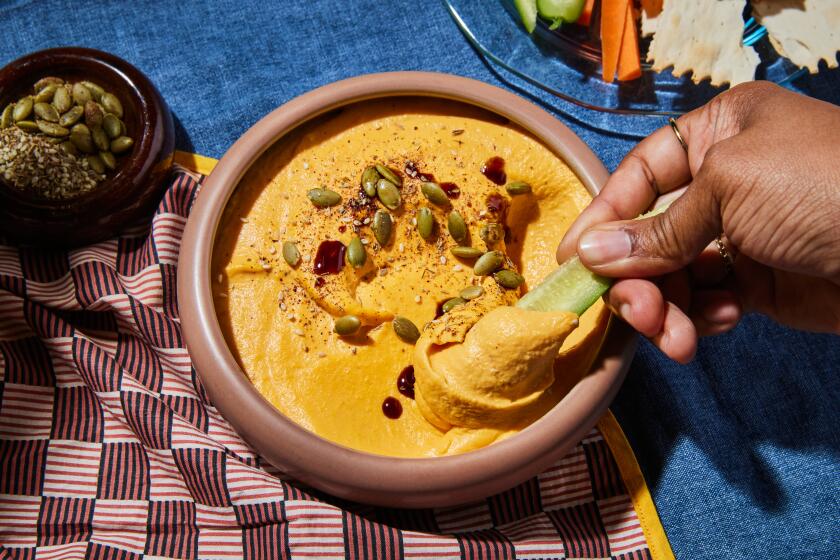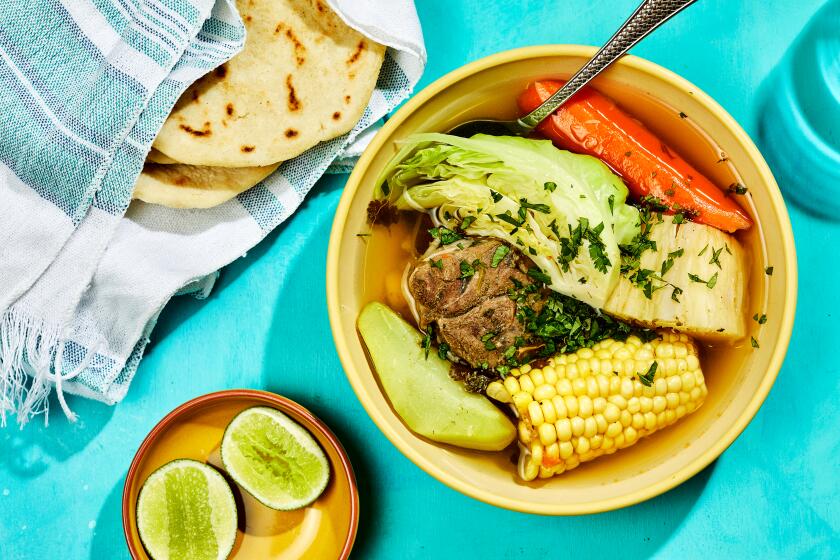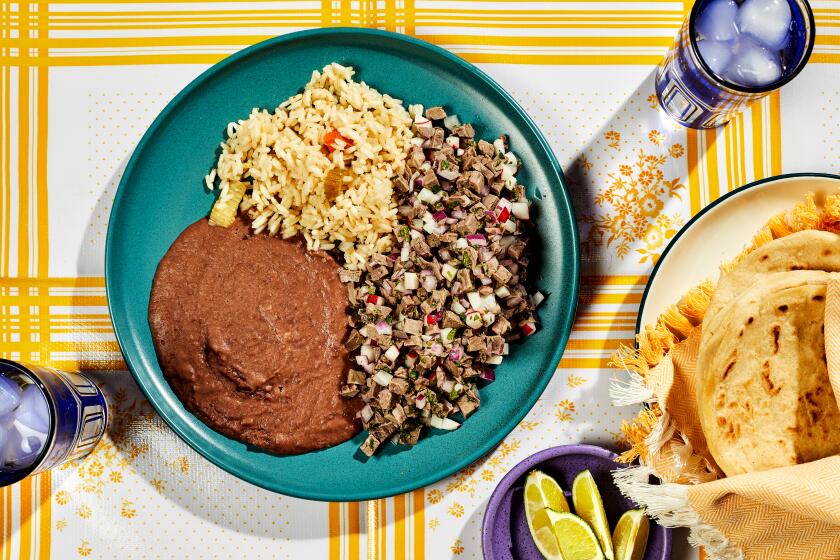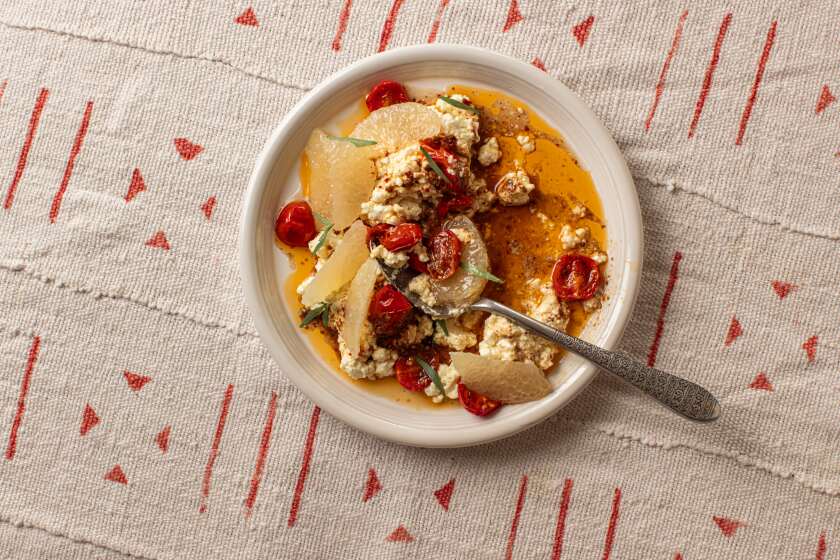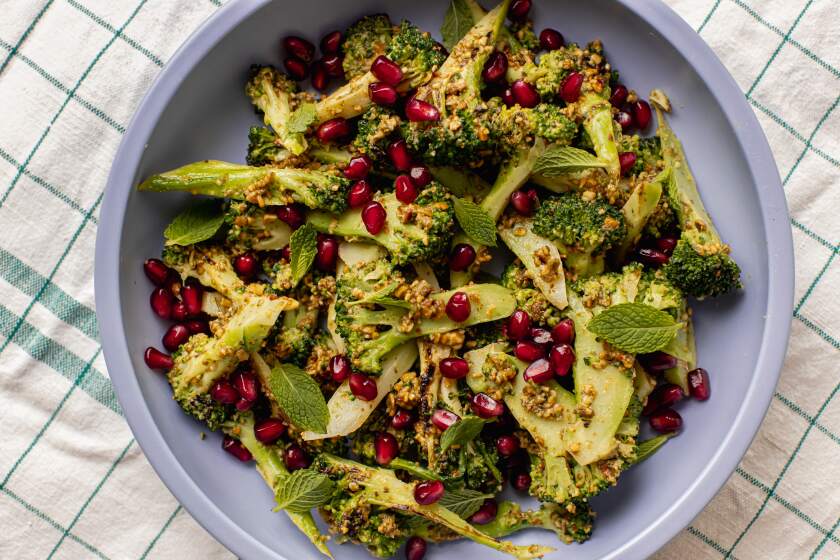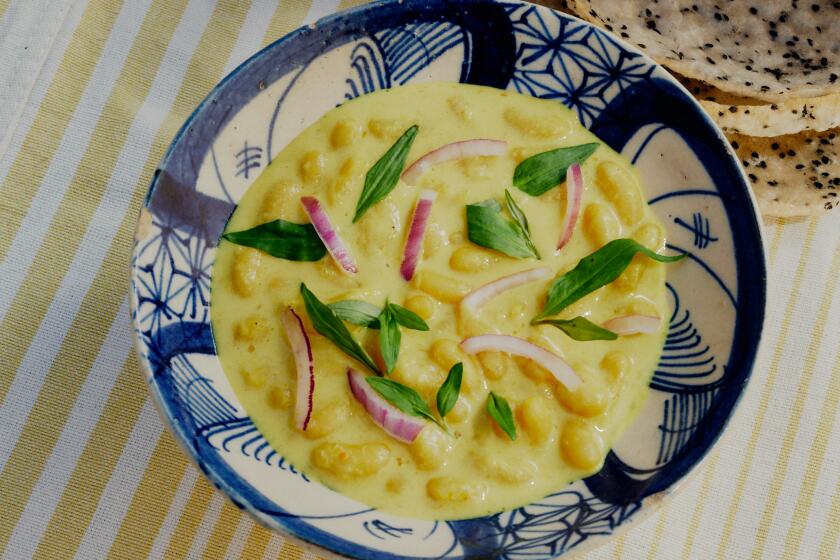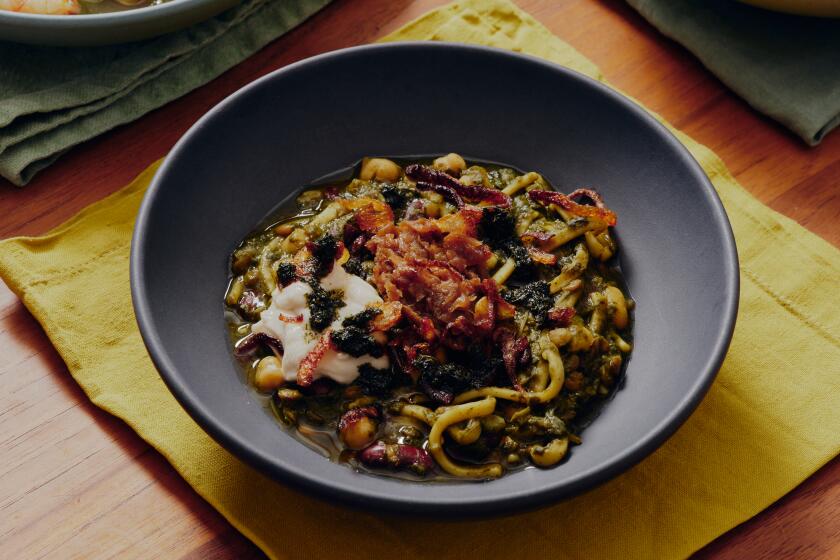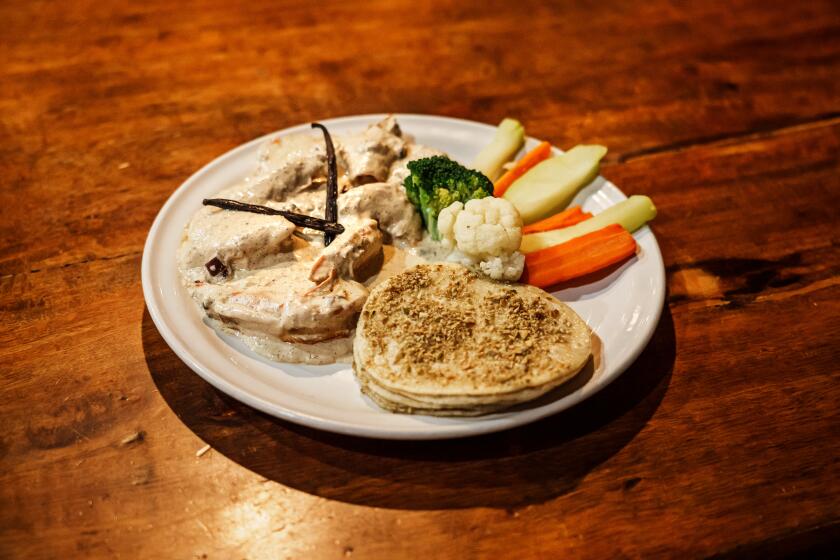Steamed couscous
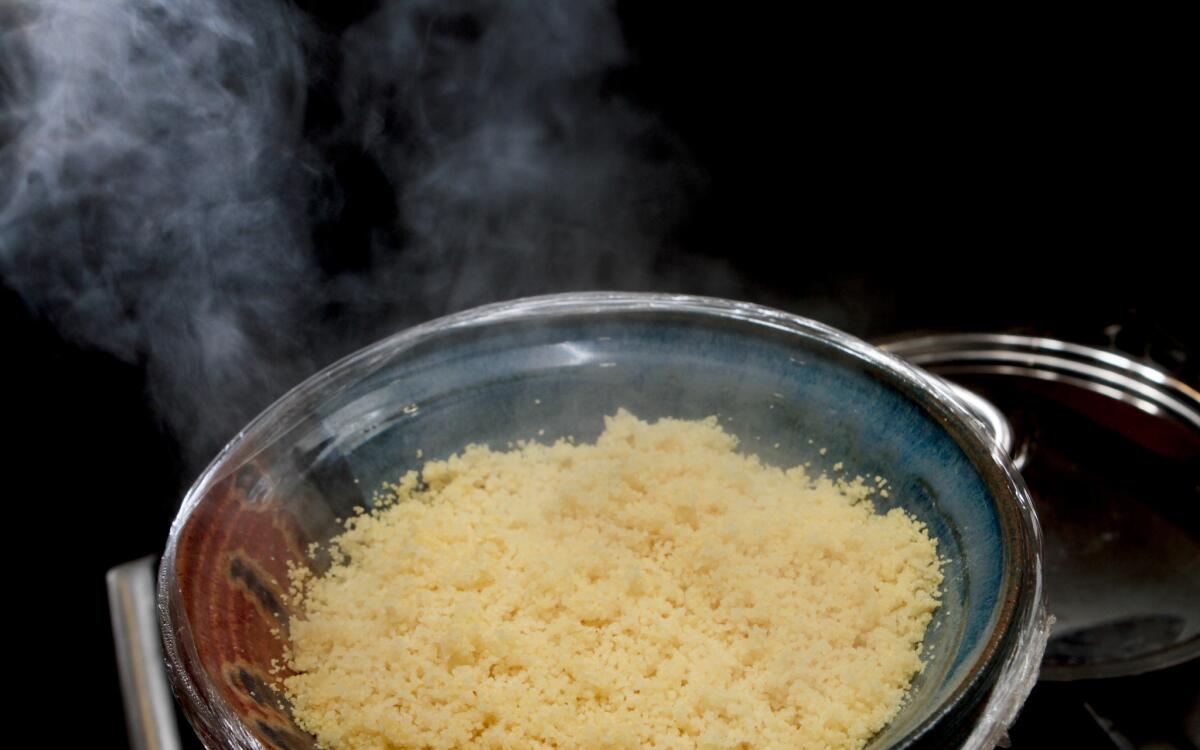
It seems like Rosh Hashanah customs were created by lovers of fruits and vegetables. Most families will begin Sunday night’s holiday dinner with apple wedges dipped in honey to symbolize the hope for a sweet new year, and many serve sweet vegetables, especially carrots and sweet potatoes.
We like the Sephardi custom of starting the meal with a mini-Seder, a ritual derived from the Talmud. Guests sample small portions of certain vegetables and fruits, such as pumpkin, leeks, chard, black-eyed peas, pomegranate seeds and dates, and say a blessing with each one. The choices vary depending on what’s available at the market -- pumpkin might be replaced by other squashes, black-eyed peas by other beans, and chard by beet leaves or spinach.
And the blessings vary depending on the community and individual home. Some blessings have roots in Talmudic symbolism. Pomegranate seeds are served because they stand for the wish that one’s mitzvot, or good deeds, be as numerous as the fruit’s seeds, which are said to be 613, the same as the number of commandments in the Torah.
Other blessings are actually puns on the Hebrew or Aramaic names of the foods. The word for black-eyed peas, for example, sounds like the word for increase, and therefore the blessing is “may our merits increase.”
To make the blessings more meaningful, some create puns based on the language spoken in their home. Suggestions for English speakers include eating peas as a hope for peace. Some of these have quite different meanings than in other languages. When eating dates, the traditional saying “may our enemies be destroyed,” based on the Hebrew word for date, could be replaced by wishing single friends “happy dating.”
Because of the emphasis on sweetness for Rosh Hashanah, some avoid lemon juice and other sour ingredients and sharp foods like chiles. There are those who don’t even eat nuts because the Hebrew words for “nut” and for “sin” have the same numerological value.
One of our favorite Jewish New Year customs, observed on the second day of the holiday, calls for eating an exotic fruit or one that has just come into season and reciting a blessing that expresses gratitude for having lived to this joyous day. We enjoy sampling several fruits, such as fresh yellow dates that have turned honey-brown, Asian pears, Keitt mangoes, dragonfruit, lychees or even durian. But the fruits over which we recite this blessing most enthusiastically are fresh figs, preferably from our garden.
Rinse the couscous in a bowl and drain it in a very fine strainer (line the strainer with cheesecloth if the couscous falls through). Transfer it to a large bowl and rub the grains to be sure they are separate. Set aside to dry for 15 or 20 minutes.
Boil 2 or 3 quarts water or bring soup to a simmer in the lower part of couscous pot or steamer. Put the couscous in the couscous pot steamer or in a cheesecloth-lined steamer basket and set it above the boiling water; the boiling water should not touch steamer. If you are using a couscous pot and steam appears to be escaping from the side of the pot, tie a damp towel around the base of the couscous steamer or wrap a piece of plastic wrap around it to prevent the steam from escaping.
Steam the couscous, uncovered, for 30 minutes.
Transfer the couscous to a large bowl and set it aside just until cool enough to handle. Mix one-half cup water and 1 teaspoon salt until the salt dissolves. Sprinkle the couscous gradually with the salted water, rubbing and tossing it between your fingers to prevent the grains from sticking together.
About 30 minutes before serving, return the couscous to the steamer and set it above simmering water. Steam it uncovered until steam comes through the couscous, about 20 minutes. Transfer to a large bowl.
Sprinkle the oil over the couscous, tossing lightly with a fork. Slowly add 6 tablespoons broth, tossing lightly. Serve hot, with more broth for moistening the couscous at the table.
Get our Cooking newsletter.
Your roundup of inspiring recipes and kitchen tricks.
You may occasionally receive promotional content from the Los Angeles Times.

